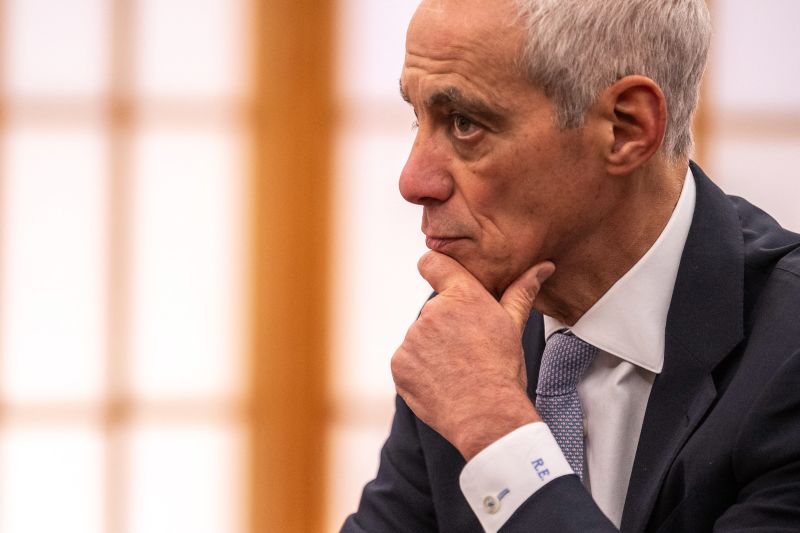Despite the importance and solemnity of Nagasaki’s yearly peace ceremony – a significant ritual carried out to remember the tragedy of August 9, 1945 – U.S. Ambassador to Japan, Rahm Emanuel, decided to skip the event in 2023. Emanuel’s decision to not attend came after the revelation that Israel, a country the U.S. shares deep-seated historical and political ties with, was excluded from the event. This report will unravel the implications of this occurrence and its potential impact on Japan-US relations, Japan-Israel relations, and the broader issue of peace and reconciliation.
Emanuel’s absence from the event underlines his disapproval of Israel’s exclusion. This exclusion was particularly significant as it immediately follows the US’s recent commitment to further fortify bilateral ties with the Middle Eastern nation. It implied, moreover, a potential representation of a diplomatic thin ice on which the Japan-Israel relationship treads. The exclusion had implications for future diplomatic ties and displayed tension that might exist between the countries. Ambassador Emanuel’s decision not to attend may thus function as a loud protest and declaration of disapproval concerning Japan’s geopolitical decision.
Speculations suggest that Japan’s exclusion of Israel could be traced back to several reasons. Japan’s relations with Middle Eastern countries, especially those in disagreement with Israel, might play a significant role. Balancing diplomatic relations on an international scale necessitates careful maneuvers. However, even though understanding this cautious approach is essential, so is recognizing the message sent through these actions.
Rahm Emanuel’s decision reflects, at its core, the US’s firm stance in supporting its key ally, Israel. This move sends a clear signal of the bond between the two countries. Notably, Emanuel’s actions are in line with the tradition of previous US diplomats who have consistently stood up for their country’s allies in face of diplomatic disputes.
Turning attention towards the Nagasaki Peace Ceremony, its significance should not be undermined. The occasion has functioned as an essential platform for dialogue about world peace, specifically regarding nuclear disarmament. Since the ceremony has a global prominence, the exclusion could be examined as a missed opportunity for Israel to engage in the global conversation about peace and reconciliation.
Moreover, Emanuel’s decision to skip the peace ceremony inappropriately merges the historical mourning and the political dispute. The Nagasaki Ceremony is intended to remember the victims of the 1945 atomic bomb disaster. His absence at the event could arguably be viewed as a politicization of this tragic historical






























